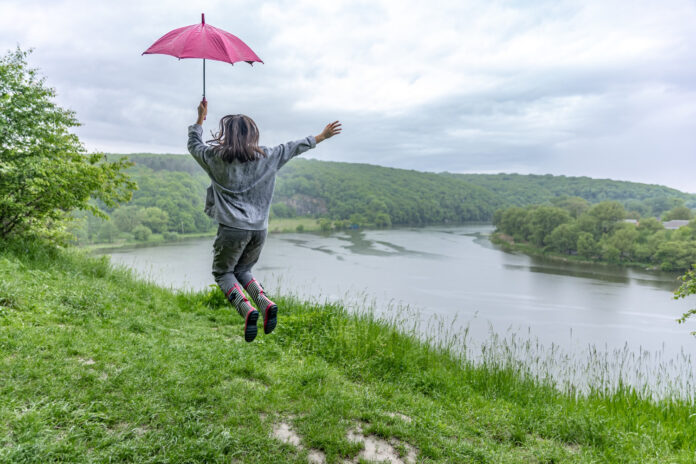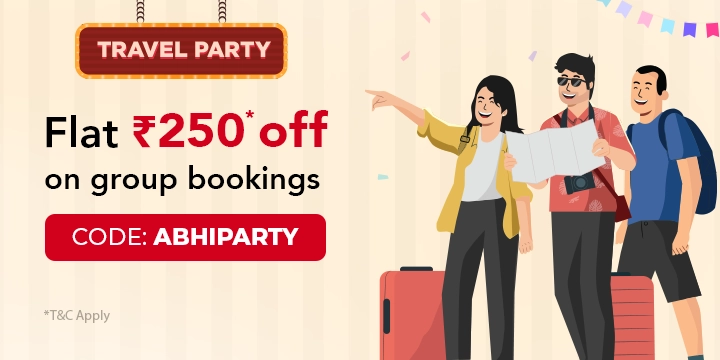The monsoon season is undoubtedly one of the most difficult times for travellers. Travelling during this time can often mean battling heavy downpour and sudden thunderstorms. The risk of contracting a mosquito-borne illness is doubled. Yet that doesn’t have to be a deterrent from travelling — as long as you plan ahead and pack accordingly!
You don’t want to end up as a casualty of the monsoon. Whether it be struggling through a blizzard in the Himalayas or battling rip currents on a tropical beach. Make sure you have the right gear and preparation before you even consider travelling this time of year.
We have compiled a list of top 10 travel tips for monsoon, on how to handle bad weather and avoid illnesses during the season.
1. Schedule Your Trip
Monsoon season lasts from June to September, with heavy rain happening equally in both India and Southeast Asia like Tamil Nadu. It is usually better to avoid the second half of the season and plan a monsoon trip while the weather forecast is still good. While it may be tempting to head out on an unplanned trip during the monsoon, avoid taking that chance.
With the unpredictability of nature, there’s always a chance of a delay or cancellation of your pre-scheduled trip. Therefore, always try to plan your trip in advance. So there’s no chance of you being caught off guard at the last minute in your rainy season travelling.
2. Check the local weather forecast
As much as the rest of the world is connected on the internet, things are ever changing specifically in the monsoon season. So if you’re in India during this time of the year, it’s good to have a basic idea of what to expect from life and weather-wise. Check if there’s any heavy rainy days and strong winds in the forecast. Know if there are any strong storms coming in.
Make sure that the climate and weather is not only bearable but sufficiently enjoyable. So you won’t get discouraged from travelling all together. If you’re starting out from an unfamiliar destination in India research the weather forecast for your destination. Checking beforehand also helps determine your availability for certain activities like trekking or beach-combing.
3. Get Help from the locals
While you’re doing your own research, it’s also good to get monsoon tips from the locals as well. You can ask around about the weather situation in your destination and make necessary preparations that way. The local people are sometimes more aware of the changing weather that even the media is not able to detect.
So locals are usually in a better position to tell you if a storm is coming or it’s just going to be fine. Ask locals about their experiences and sometimes they might even help you through tough situations. By communicating with locals you can also know about the local food joints and unexplored places to visit in that area.
4. Preparing the right gear
Before you leave, it’s important to ensure that your travel essentials are fully prepared. This includes packing essentials like raincoats, waterproof covers, synthetic clothes, sunscreen, warm layers and more. During monsoon season, these can prove to be very useful in some of the most unpredictable climates out there. Be sure to pack all the necessary gear that you need for both winter and monsoon seasons alike.
If you’re travelling during the wet season (which usually lasts from July to January) make sure you carry proper rain gear. If your destination is an active volcano or has a tropical climate (like Phuket or Bali), you should have warm layers when the weather suddenly changes. Also this type of packing will be helpful if you want to explore the natural beauty of wildlife sanctuaries.
5. Pack according to weather
In the monsoon season, the Indian landscape transforms into a green carpet of vegetation and valleys of flowers. This is a great time to visit for photography and sightseeing at national parks. As the colours of nature are very vivid and wonderful. However, due to the rain and moisture in the air, it’s important to ensure that you don’t pack clothes that become heavy and soggy from water.
Remember that most cities are pretty large when you’re going to roam around while your travel during monsoon season. So it’s good to be prepared. Bring an umbrella with you at all times because it will probably rain and remember that it can get pretty windy too. Pack light weight synthetic clothes which are easily adjustable and layer up depending on the weather conditions in different areas of your choice.
6. Carry medicines and repellents
Most travellers are familiar with mosquito bites, especially in areas with stagnant water, but in monsoon countries such as India. The season also invites a lot of insects. Due to the amount of water in the air, mosquitoes and other biting critters tend to flourish during this time. Make sure you have some repellents with you at all times.
Try your best not to get bit by any insect that can bring along illnesses like Malaria, Dengue or even Zika etc. In case you do fall ill, carry a first aid kit with medicines for mosquito bites, fever and heat-related conditions. You could become vulnerable to sicknesses due to dengue or malaria. Or infections like heat stroke when travelling during the monsoon season.
7. Avoid off road travel adventures
While the travel experiences during monsoon season are amazing, you don’t want to end up as a casualty if you have to travel through rain-related conditions. Be sure to avoid doing any sort of outdoor adventure during this time of the year. If you particularly have an interest in off road travel and trekking,
The most popular places for adventure trips are Himalayan hill station areas during monsoon season. But be sure to check the weather conditions first before leaving on any trip. You might want to book your adventure trip months in advance. If there’s a chance of it being cancelled make sure you get a full refund – especially with unpredictable weather like monsoon.
8. Avoid street food and drinking water
Street food vendors, especially in India often serve water that has been mixed with disinfectant or stagnating water. This can be toxic to your health and it can pose a threat to your stomach. Another observation is the staggering number of people falling sick during monsoon season.
It might be a good idea for you to carry purified and boiled water with you throughout your trip. So that you can avoid getting sick from contaminated water. Also avoid eating street food because most of the time it is not hygienic. You might also wanna check up on Fungal infections caused by eating street food while travelling during monsoon season.
9. Don’t forget your umbrella and raincoats
An umbrella is a great travel essential at all times. But particularly during monsoon season when it rains more often and heavy downpours are more common. Which is why it’s important to check yourself before heading out and stock up on an umbrella of some sort. Especially if you’re going to be travelling around cities by walk and public transport.
Also carry raincoats along with waterproof covers because sometimes umbrellas cannot withstand heavy rains and winds which come along. Prefer travelling in buses and trains instead of flights or cabs. These are less risky in case there is a change in the weather, which can delay your travel experience substantially.
10. Carry a good first aid kit
In case of an emergency, bringing a first aid kit with you is highly recommended. It can save your life in case of sudden illness or injury, having one on hand can make a huge difference during a trip. The kit should have all the essential items that a doctor recommends. Which can be used to treat common illnesses such as coughs, cuts, muscle pain and more.
Before travelling , it’s always wise to research the medical facilities available at your destination. Also check for the availability of a holiday health insurance policy that covers you during your travels. Having this information will help you decide whether or not to purchase any form of travel insurance as well.
By taking these precautions and following monsoon travel tips, you’re sure to have a memorable and enjoyable time in India during monsoon season. Even if you do end up getting sick, there are tons of medical facilities for you to avail during your trip. In fact, there are many medical services available for travellers visiting India from all across the world.
Many travellers believe travel during monsoon season is more difficult. It’s inconvenient while travelling because during a visit you’re wet all the time. However, it is possible to travel outside of major cities and see amazing sights that you can’t experience any other time of the year.





